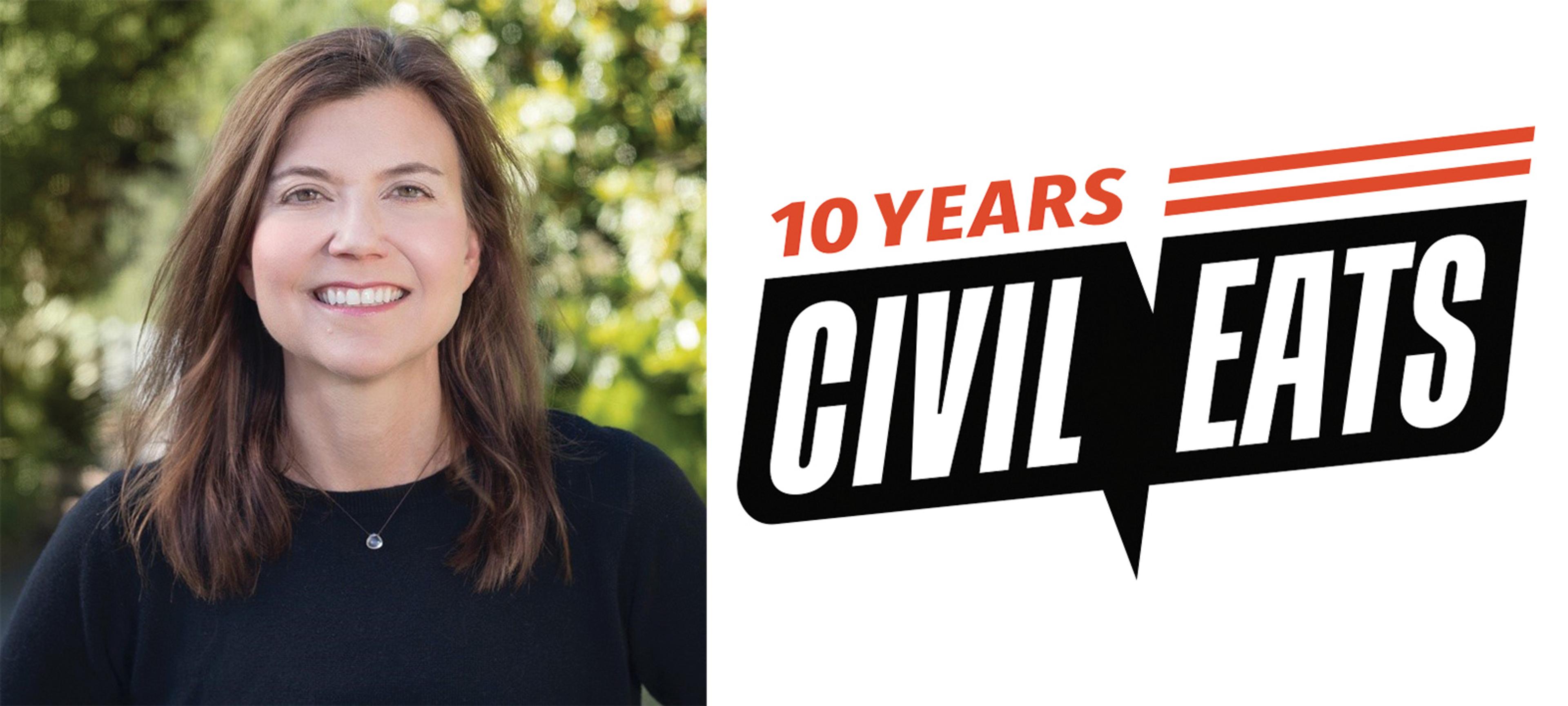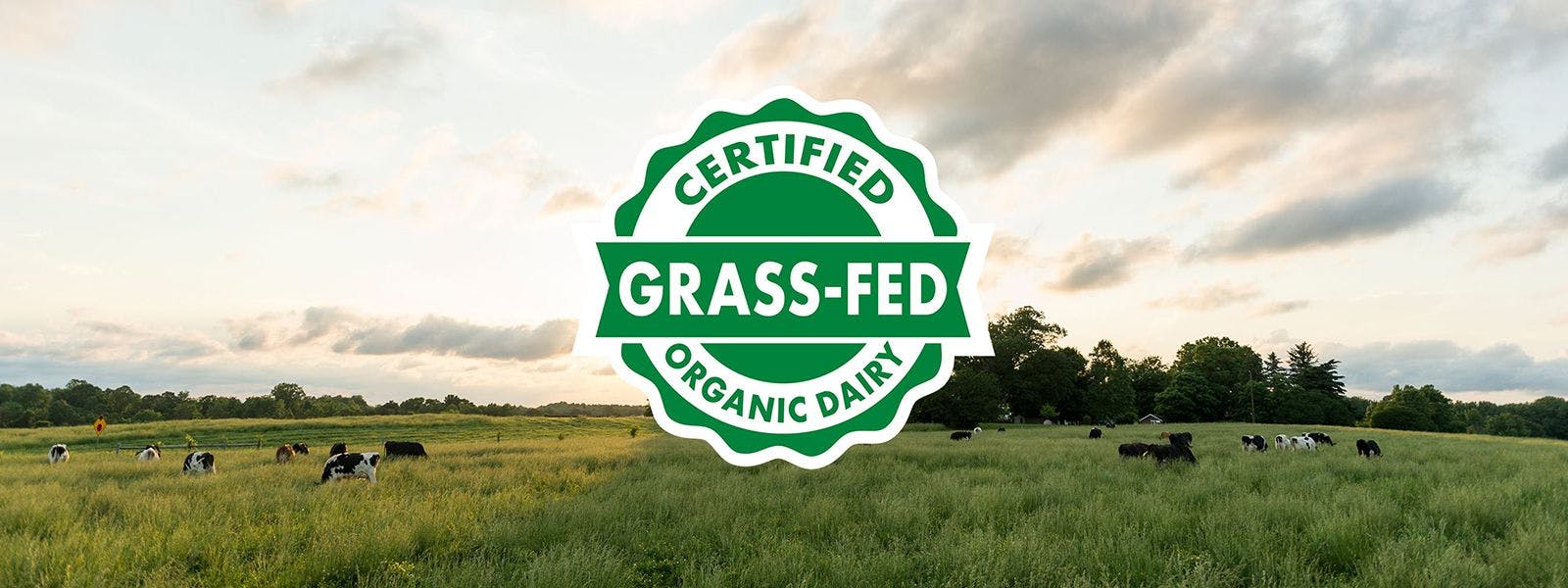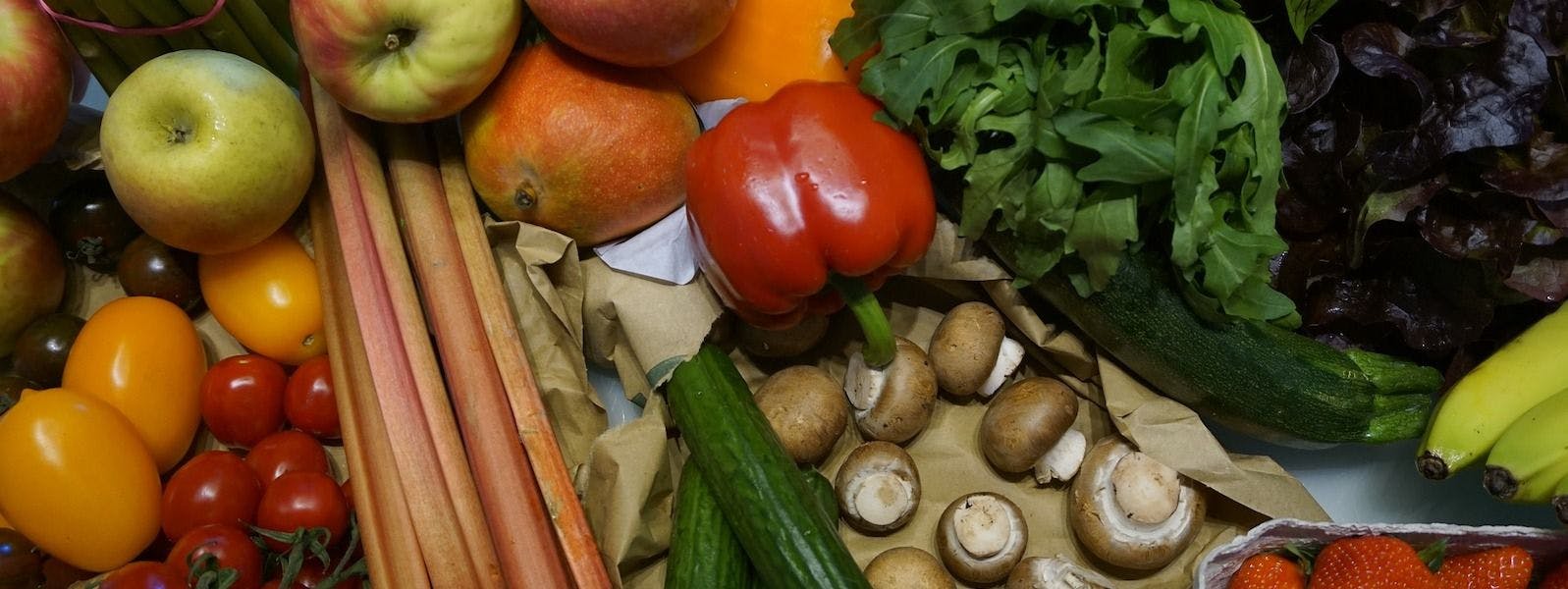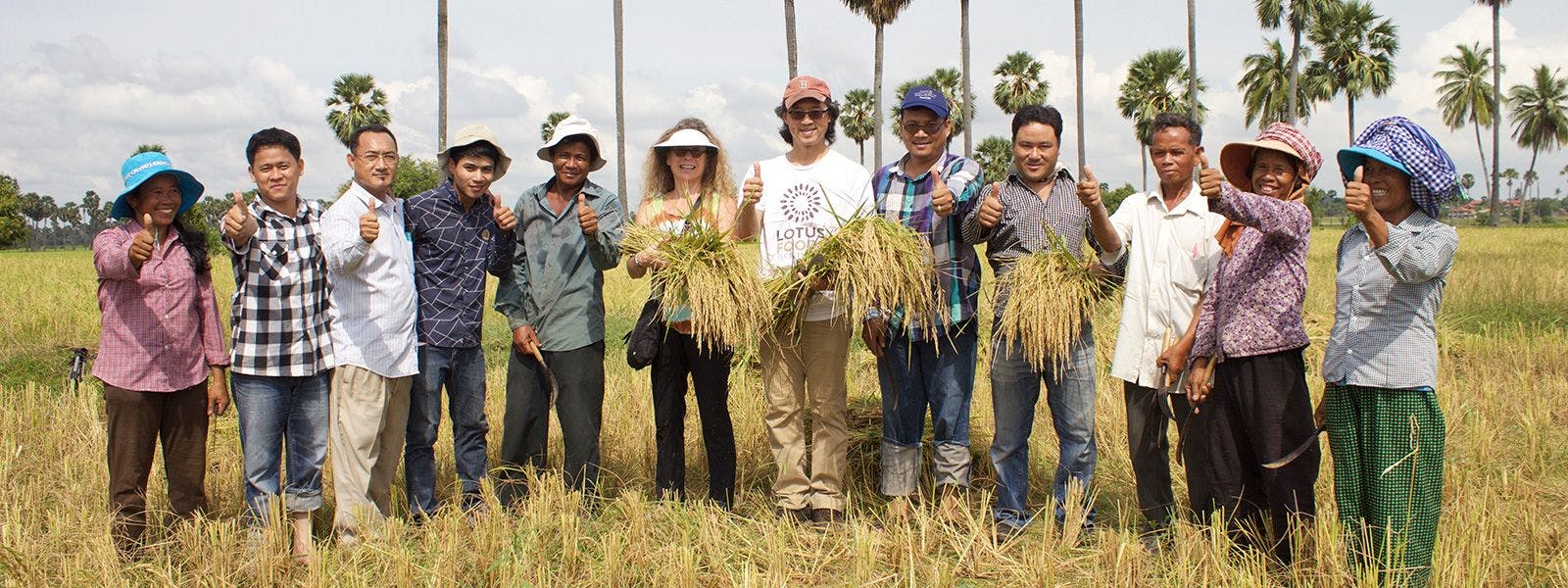
Rooted
Naomi Starkman of Civil Eats on Fixing TWO Broken Systems: Food & Media
On this week’s episode of Rootstock Radio, founder and editor-in-chief of Civil Eats Naomi Starkman reflects on 10 years spent building a daily news source for critical thought about the American food system. She’s not interested in being beholden to big advertisers and big business, or in chasing the current 24-hour news cycle for that matter. No, Naomi is interested in illuminating the triumphs and challenges of our current food system through fair, balanced and high-quality journalism. With the James Beard Foundation’s 2014 Publication of the Year Award under its belt, Civil Eats is well on its way to doing exactly that.

Tune in to hear about:
- Naomi’s hope to fix the broken systems in food AND the media.
- How she’s seen the reporting and readership around food-related issues change in the last ten years.
- The Rural Environment and Agriculture project that Civil Eats undertook to connect with more people in America’s heartland.
- Why Naomi calls herself a “short-term pessimist but a long-term optimist.”
- The way she sees journalism as standing in the middle—between advocates, policymakers and changemakers—and why integrity in this middle ground is so incredibly important.
Listen at the link below, on iTunes, Stitcher, Google Play or wherever you get your podcasts.
Rootstock Radio Interview with Naomi Starkman
Air Date: March 25, 2019
Welcome to Rootstock Radio. Join us as host Theresa Marquez talks to leaders from the Good Food movement about food, farming, and our global future. Rootstock Radio—propagating a healthy planet. Now, here’s host Theresa Marquez.
THERESA MARQUEZ: Hello, and welcome to Rootstock Radio. I’m Theresa Marquez, and I’m here today with Naomi Starkman, who is the founder and editor-in-chief of Civil Eats, a daily news source for critical thought about the American food system. Naomi also co-founded the Food and Environment Reporting Network (FERN) and has worked as a media consultant to Consumer Reports, Newsweek, New Yorker, Vanity Fair, and on and on. Welcome, Naomi, and congratulations for having done this every day for ten years. That’s amazing.
NAOMI STARKMAN: Thank you, Theresa. I’m really pleased to be with you today. And thanks for the well wishes. We’re really pleased to still be around in this ever-changing media landscape.
TM: Yeah, I think that all of us who have learned so much from the kind of journalism that you’ve been doing, it’s just been fantastic. And ten years—I’m going to have to ask, what’s it been like, the difference between your one and your ten?
NS: It’s been a journey. You know, as it turns out, we’re trying to do something very unique and specific. Sometimes when you’re a pioneer, things are really hard, right, when you’re trying to lay the groundwork, as you know from your own work. And it’s been a struggle. It’s a struggle to have an independent media organization. We’re trying to fix two very broken systems, both the food system and the media system. And as it turns out, they’re both sides of the same coin. You know, we want cheap food and cheap media, and we’re getting junk food and junk journalism. And so they’re both in the public interest, and we’re trying to create thoughtful, nuanced reporting that we feel will make a difference, so it’s additive. We don’t do hot takes, we’re not interested in chasing the news cycle. We’re interested in really asking some hard questions and oftentimes leaving it with our readers to come to their own conclusions.
But I would say the primary difference in the last ten years is that there’s a lot more awareness around food systems, around asking questions around where our food comes from. And I would say that primarily, when we started Civil Eats in 2009, there really were no major media outlets focused on sustainable ag. And here we are now, a decade later, and I hope that we have led the change in creating a robust public discourse on the American food system.
TM: Well, I think you definitely have influenced it tremendously. I mean, ten years—that’s a long time, and also you have so much robust information. I’m curious, how has it evolved? Did you find yourself reporting in different ways, or taking on different topics?
NS: Well, I think, just to answer parts of your question separately, I think, first of all, when we first started, there was this interest, right? There was increased public awareness and certainly engagement of the issues and opportunities and challenges in the so-called food movement. And there were lots of calls to action for more sustainable and healthy practices. And while more people were certainly hungry for consistence (?) reporting, and there were certainly some mainstream outlets that were increasing their coverage of the issue, there was a lot of content that we felt was kind of inundated with corporate messages. And we saw those messages sort of being designed to promote, overwhelmingly, unhealthy products and ideas.
And so we tried to kind of step to the side of that by being an independent news organization. We really are not beholden to anyone. And that allowed us to be very clear in our mandate to really unearth topics and have conversations that we felt were really necessary about corporate power and accountability, and really be more of a watchdog to some of these issues and ideas that we saw bubbling up. Certainly any time you do that, you’re going to raise the hackles of folks who would much rather those issues stayed silent.
To answer your question about how our reporting has changed, we, uniquely in this space, we have always tried to bring kind of a clear and compelling voice to what we see as a very complex range of issues. And we’ve done that by focusing on fair and balanced, high-quality journalism. You know, by breaking down these topics into smaller chunks, we feel like we actually have added value.
You know, the biggest challenge for us, frankly, was funding. I mean, the first four years of Civil Eats we operated with no funding, and it was really a labor of love—or, as I always say, a love of labor! We raised an unprecedented $100,000 via Kickstarter in 2013, and then we were named the Publication of the Year in 2014 by the James Beard Foundation. We did that all with very limited resources. And then the following year, I was named a Knight Fellow at Stanford. And those, each of those things helped us build awareness and resources to be able to bring on full-time reporters, part-time editors, folks we felt we could really round out the conversation.
So it’s been very slow and steady, but over the years our focus has never changed. I mean, we’ve been reporting on lots of issues from the outset and, I would say, issues that I know are important to you and to many of your listeners, specifically on environmental health issues, on climate change. Connecting the dots between racism and food has been really a focus for us, almost since our inception; looking at issues of justice, access, equality in the food system; looking at alternative ways to farm; agro-ecological practices. We do farmer profiles; we’ve focused on urban agriculture. And so all of those topics have remained near and dear to our heart. What’s changed, I think, is our ability, as we’ve grown and the awareness has grown, and I guess our steady approach has allowed us to be able to fund deeper and more meaningful reporting over the years.
(7:31)
TM: Wow, that’s fantastic. And for our listeners, CivilEats.com, I want to make sure that you all know that so that maybe while you’re listening to this you could also see what’s on there today. And do you think that your audience has changed much over the last ten years?
NS: That’s a good question. I mean, from our own surveying and what we know based on our analytics, we have pretty much the same demographic of readership. We have that much sought-after millennial set, so young people between the ages of 24 to 35; lots of people on the coasts. But one thing I would say that has changed is, in our focus of our reporting, for example, last year we were able to really dive in deep with a reporting series on the sort of parts of the country that most people don’t like to think of but are really very responsible for how our agriculture is undertaken. And the series, which was called “The Rural Environment and Agriculture Project,” was an opportunity to let us connect more deeply with people in the Heartland. And so I would say our readership definitely has grown and deepened. It helped us raise our profile in those rural communities, which are so often culturally divided from urban and coastal Americans. And so that kind of reporting, I think, has brought in new readership for sure.
TM: I’m sure that you’ve heard this before, but the Heartland is so conservative. Are you…I mean, you said that you’re coming into rural and you’ve got some new listeners there. Are they people who don’t always agree with you? How do you know whether people are agreeing with you or not?
NS: You know, it’s interesting. I would say where we have the most kind of conversation, in our comments section at least, is whenever we write about meat. So I think meat consumption, industrial animal agriculture, is very, very personal and very political at the same time. And as people are becoming more aware of the implications of our industrial animal agriculture system, but also the public health considerations—their own health but also the health of the planet around how animals are farmed—there’s a lot of pushback from people who would very much like to keep the status quo. And, interestingly, at the same time, there are plenty of folks who identify as plant-based or vegan who are really disturbed with any notion of what they feel is miscalled as “ethical” animal management. So those sort of high-welfare farmers that we profile, they’re really in disagreement with. So we have these two interestingly and seeming disparate challengers, I guess, to what we’re reporting on.
But just by using that as an example, you can see that there’s a huge spectrum of feelings about something like meat. And we can just tell from the comments, we can tell from the number of story shares—our stories get picked up. We have a lot of mainstream media partnerships, for example, so we can tell when a story gets a lot of traction, whether we’re raising eyebrows. We try to also do a lot of commentary pieces, so we try to really find voices we feel are not maybe being heard in the mainstream. And we also are seeking to do sort of point-counterpoint—in other words, presenting positions from different perspectives. That’s really important.
TM: Well, you know, we’re here in the Midwest, in the Heartland. And as you know, I’m very much committed to organic in food and agriculture, and I want to see a transformation in food. But I’m worried about the farmers. And I wonder how we can talk to farmers who are so convinced that conventional ag or the way that they’re farming is absolutely the way. Like today, on Civil Eats, the title piece is called “Breaking Up Big Ag.” Isn’t that threatening to some of the conventional farmers?
NS: What’s really interesting, you mentioned that piece, so that’s a good example of a piece. That was actually originally a piece that Austin Frerick wrote for The American Conservative, which is quite surprising, but they were doing a series of articles on the need for antitrust regulations in U.S. agriculture. And we saw it, and we know Austin—we’ve published his work before—and we decided to run it on our site. So it’s not something that’s unusual for us. I mean, we have written at length about the problems caused by consolidation in the ag sector. And in fact, one of our stories last year by Siena Chrisman about this sort of second or perhaps third coming of the farm crisis was really based to a lot of these issues around consolidation. That story was picked up by the Institute for Nonprofit News as one of their Best Stories of the Year.
I think, you know, it’s sort of like the method is in the madness. Like how are you telling the stories, how are you sharing them? You know, years and years ago somebody came to me and really wanted to talk about consolidation. And I always said—and I really believe this about every story we tell on Civil Eats—the way to help change hearts and minds, if you will, is by showing an example, by really painting a picture, by changing the narrative and showing people examples of people in places who are directly impacted by these policies that feel so really far away and like it doesn’t impact your day-to-day life. But if you can give people a way in, empathy is a very strong driver. And so today’s story is an example of what’s happening in America because of agricultural consolidation. And Austin Frerick, the author of the piece, really talks about the problems that it’s creating in the Heartland, where you are.
TM: Yeah, well, certainly the chemical monopolies is a certain big one. And I’m just reminded that having stronger antitrust laws are critical. And yet right now, of course, our government’s going in the opposite direction. Would you say that the way our current government is helping make awareness about why we might need stronger antitrust laws and other laws regulating the food system?
NS: Yeah. I mean, one of the interesting things that’s happened over the last two years under the current administration is that people for the first time really understand what is going on with our agriculture system and also many of the issues you just described. So, for example, whereas before I think a lot of people were kind of living in the glow or the heyday of the former administration under Obama, now people really understand what’s at stake. The challenge is that I think people are feeling very much like they don’t have a say anymore, that everything has sort of turned a different direction, that the ship is sailing a different direction, from everything from oversight of chemicals to monopolies, like we were discussing, to pesticide use, to any number of issues, oversight over organics—like that every piece of our food and agriculture system feels really at odds with perhaps what people had hoped it could develop to be, and also what people had been working on for the last decade.
I mean, one thing I will say is that while that is true, and at the federal level things are really either at a standstill or moving precipitously backwards, there are myriad examples in the United States of people, individuals who in their home, states, cities, regions, are really working to effectuate change. And it’s those stories we really seek to tell, because no matter who is in office, we believe that individuals are really going to continue to move this movement forward and care, and that together they are a thousand lights of people who, this sort of [unclear—“casting over shadow”?] of what’s possible. And really, it’s in cities and states where we see the most traction.
So we just did this big roundtable for our tenth anniversary. We’re going to be talking to a number of experts on all the topics we’ve been reporting on for the last decade, and we just did one on climate change. And we started with climate change because we felt that climate change was so urgent. I mean, climate change is the perfect example, when you see the U.S. stepping so far aside from what we all think should be done. Well, look at a state like California. I mean, California is really moving forward as much as it can to really make a difference, incentivize farmers with healthy soil initiatives and the like. So there are places in the United States that are going to continue to take steps forward on policy, even if the federal government is taking steps backwards.
(17:10)
TM: If you’re just joining us, you’re listening to Rootstock Radio, and I’m Theresa Marquez. And I’m here today with Naomi Starkman, founder and editor-in-chief of Civil Eats, a terrific daily news source and for really some critical thought about the American food system.
Are you hearing from the people in the rural communities that they feel that it’s time for kind of a renaissance in rural America? I’m just curious, do you see that there's a possibility that we could potentially be in a place eventually where we’re putting more energy into rural ag and into smaller farmers, mid-size farmers?
NS: I mean, I am a short-term pessimist and a long-term optimist. I think you have to be in order to do this work. I mean, my sense—and I’m not somebody who lives in rural America, so I really can only speak from my limited perspective—but my sense is, based on our reporting and the conversations we’ve had with many, many people who live in rural America, that there are so many people who want to change the system and who are working to do it.
We did a story early on last year about the work being done by the Western Organization of Resource Councils. They’ve been an unrelenting grassroots critic of big ag for decades, and they have this kind of innovative online site. It’s a website where they’re trying to tell their stories. I think a lot of this is about changing the narrative and getting people to understand that there are people in the middle of the country who really care about food and farming and the impacts thereof. And that is where this movement is happening. It’s with people who are living in the middle of the country, whose lives are at stake because of corporate farming practices and who really want to make a difference.
Another story we did in the same series was about these seemingly, again, disparate individual people who are in this no-till farming practice that are all these conventional farmers who are aware of the fact that their practices are endangering their land, and they’re really willing now to come forward to try to understand, for the sake of the soil health, that they could perhaps practice no-till farming. And they’re sort of in the same camp as many, many farmers who practice sustainable agriculture. I mean you wouldn’t think it, and here they are, and they’re talking to each other. So maybe they don’t use the same language to describe what they’re doing, but it’s clear that both groups are motivated by this opportunity to be responsible stewards of the land. And they’re exploring creative solutions to the status quo.
And so I would say identifying these possible opportunities and solutions is kind of core to what we do, and it’s what we’re seeing. And I would say there is a renaissance in rural America for that reason.
TM: I’m just so curious, when I think about the ten years, every day, and how much you’ve learned from 2009 to 2019. And I can’t help but wonder, just every day, getting something out—I mean, does it ever occur to you, “Hmm, maybe I should be working more on taking what I know and going into policy change, or creating events where people come together and create some kind of change initiative,” et cetera? Or “Maybe I should be writing a book about all the things that I’ve learned”!
NS: (Laughing) Well, I’ll answer each of those in turn. So first, I mean, I actually have a policy background, so I started off as an attorney and I worked in public policy for a number of years. And my personal experience was that it is such a slow-moving tanker ship, and it was the reporters I spoke to in that position who were really able to move the needle further, faster. And that’s why I got into mainstream media. I took a kind of a turn because I really believed that it’s really in sort of the court of public opinion where things happen, and I feel that journalism is sort of the way to do that, by storytelling. I really believe in the power of storytelling to change hearts and minds.
Events, to me, having been involved with them in various parts of my professional life, are important, and they’re always important to bring people together. I’m not necessarily convinced that they make significant change. They are important to, convenings are always important to bring people together. But I think the longevity of a story that actually can really make a difference, that has legs, that has shelf life, that’s ever green, to me there’s so much more value in that kind of work.
And I think, finally, I would say that really people would love for there to be kind of more an advocacy piece to what we do, but we’re journalists, and there is a really important role we are playing. We are standing in the middle between advocates and policymakers and changemakers to be able to bear witness to the stories we tell. And I think that is a role we take very seriously and with much responsibility. And I think there are very few people who do that, and who do it with the integrity that we do, and I would never trade that role for anything.
TM: Well, I want to second that. I do think that you have tremendous integrity. When you’re not beholden to big advertisers and big business, you can hold that integrity. So thank you so much for that.
I’m wondering, if you think about food and farming now, is there an issue that you think, “Gee, I wish I could impact that more”?
NS: Well, I think at the end of the day access, equity, justice—those issues. It’s a wide-ranging topic, but it ranges from protecting farm workers from pesticide drift to making sure that children have access to good nutrition. I mean, I really believe deeply that food is a human right. It should not be a privilege. And so being able to change the dynamic whereby healthy food that’s good, clean, and fair is accessible to all, really, is always at the front of my own personal goals in life and vision. And how we get there is a long road.
(24:13)
TM: You know, I talk to so many people who do know about Civil Eats, and the way they would describe what you’re trying to do is “hopeful” and “inspiring.” So yourself, you know, when you think about some of these topics that are really tough, like we need to break up big ag, and so on and so forth, how is it you’re able to keep that hopefulness and that inspiration while covering some of the somewhat depressing topics sometimes?
NS: Yeah, it’s tough. You know, I would say that it’s probably our secret sauce that we really do find a lot of hope and inspiration in individuals who are making such a big difference, who really are building the bricks of a new food economy. So their stories really keep me going. I feel it’s a great honor and privilege to do what we do. We, as a team, really are committed to telling stories of hope, solutions that we feel are making a difference every day. And we balance it out with telling news stories that are not so easy to digest. And it’s tricky. I mean, I’m an avid news reader, and so I certainly struggle with the fatigue that I think we all do from the onslaught of really serious and harsh news. And I think it’s what makes people hungry for our reporting, that people could stand to hear what’s working. And that keeps me going every day.
TM: Well, you know, I am thinking, okay, here’s the first ten years. What do you see for the next ten years?
NS: Well, you know, it’s always uncertain what’s actually going to happen each year. We’re really relying on our funders and our subscribers. And so my hope is that we’ll be able to continue to do more in-depth reporting—that we’ll be able to continue on, first and foremost. I look around and there’s a lot of our colleagues who have closed their publications or shuttered altogether or limited their reporting. So first and foremost, my goal is to be able to continue to report. And I think also bringing our stories in different media. So having more multimedia reporting, more visual storytelling of photography, bringing Civil Eats to the small screen. I think having ways to bring these stories to more people in different formats would really be our goal.
TM: Do you ever feel, because you are talking about very controversial things, do you ever consider being a journalist a risky job?
NS: It’s a really important question. You know, I certainly think it’s why we take what we do very seriously and why it’s so important to protect journalists, and to really identify what is journalism versus what is not. There are plenty of outlets and sites that you might think are journalism but they’re really not. So first and foremost, really having a sense of who is a journalist and who is not; what is a journalistic outlet, what is not; and what’s at stake.
And I would say I have not personally been threatened—I’m lucky that I haven’t. Our team, I think because we’re so focused on what we’re doing, for the most part we’re beyond reproach, you know? And there’s always going to be detractors and folks who dislike what we’re saying or part of an article or they don’t like the approach we’ve taken or we didn’t include them in the article. But I would say in the ten years we’ve been producing journalism, part of the reason that we have such a sterling reputation is because we really adhere to journalistic ethical standards and try as best we can to produce stories that we feel are above and beyond those sorts of attacks.
TM: Naomi, it’s great talking with you. And wow, congratulations. Wow, ten years!
NS: Thank you so much, Theresa, for all you do and for shining a light on our work. We really appreciate it.
TM: And for our listeners, you can subscribe to CivilEats.com, and $35 for a year is, what a great value that is. Every day you get some really interesting news. So I’m going to encourage all of you to do that.
NS: Thank you, Theresa.
TM: Yeah. Thank you so much for all the great work you’re doing.
You can listen to Rootstock Radio on the go wherever you get your podcasts, and find us online at RootstockRadio.com. Rootstock Radio is brought to you by Organic Valley.
© CROPP Cooperative 2019
Related Articles
- Tags:
- Rootstock Radio,
- women in food & agriculture,
- activism
















